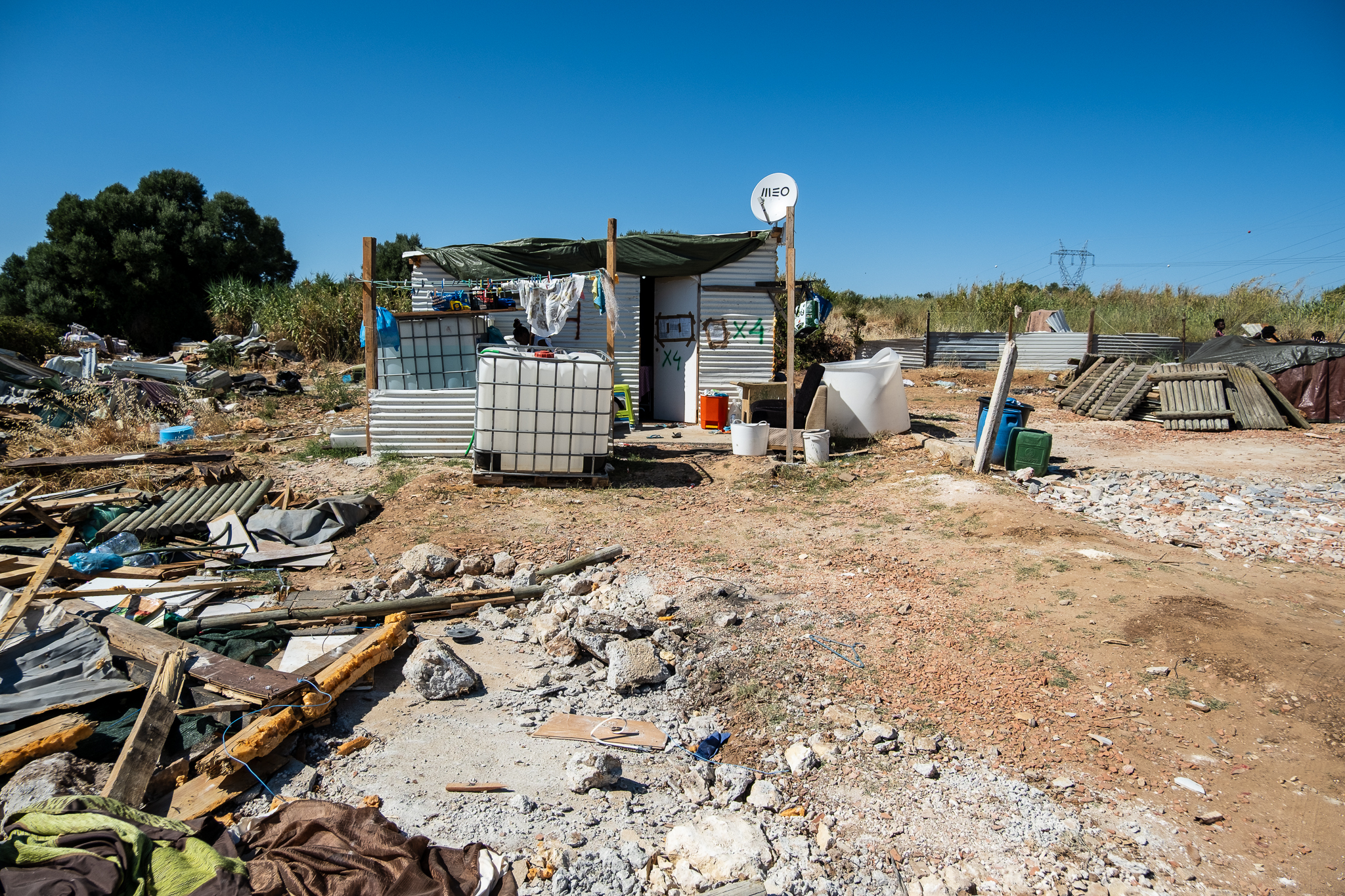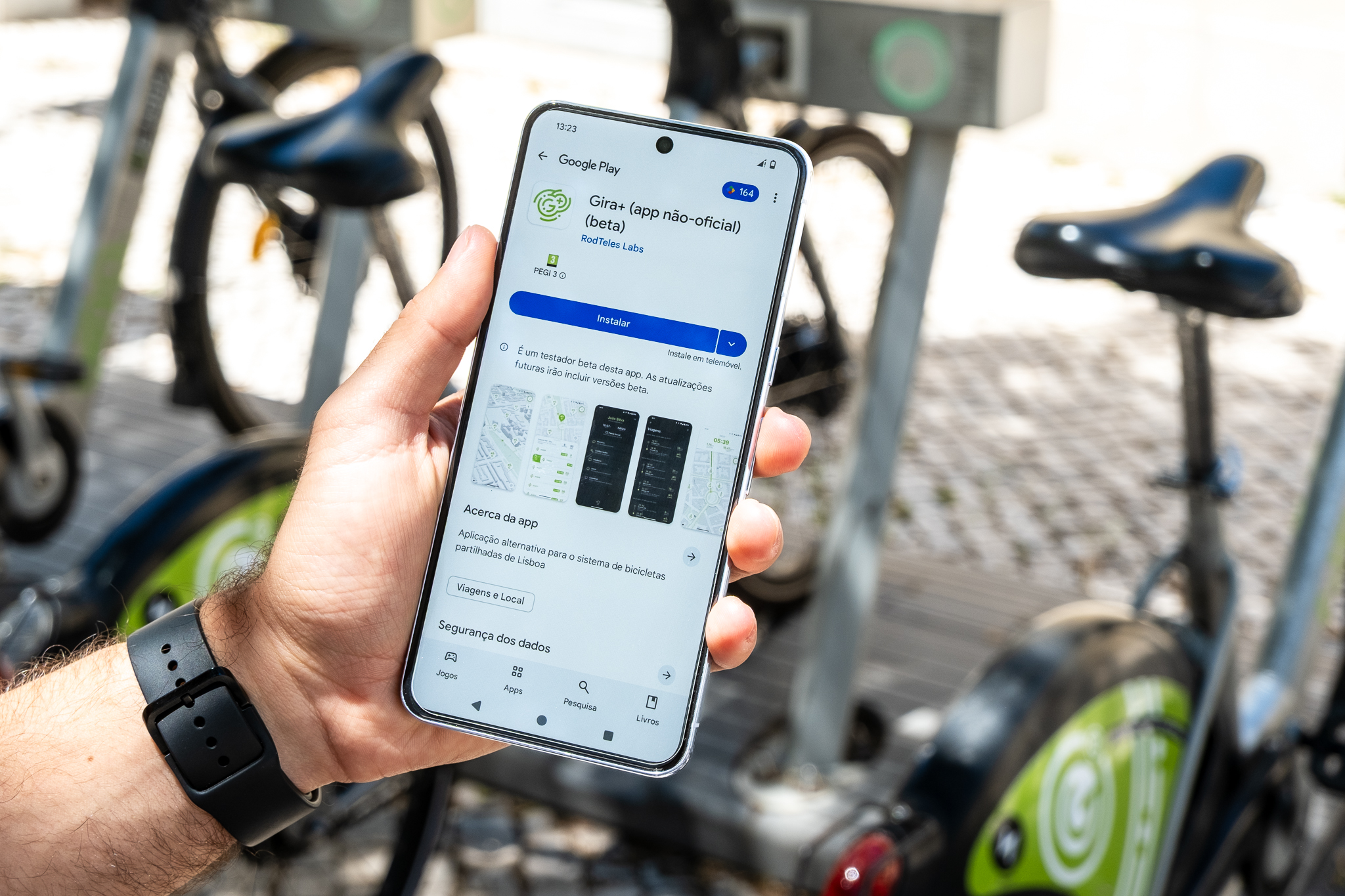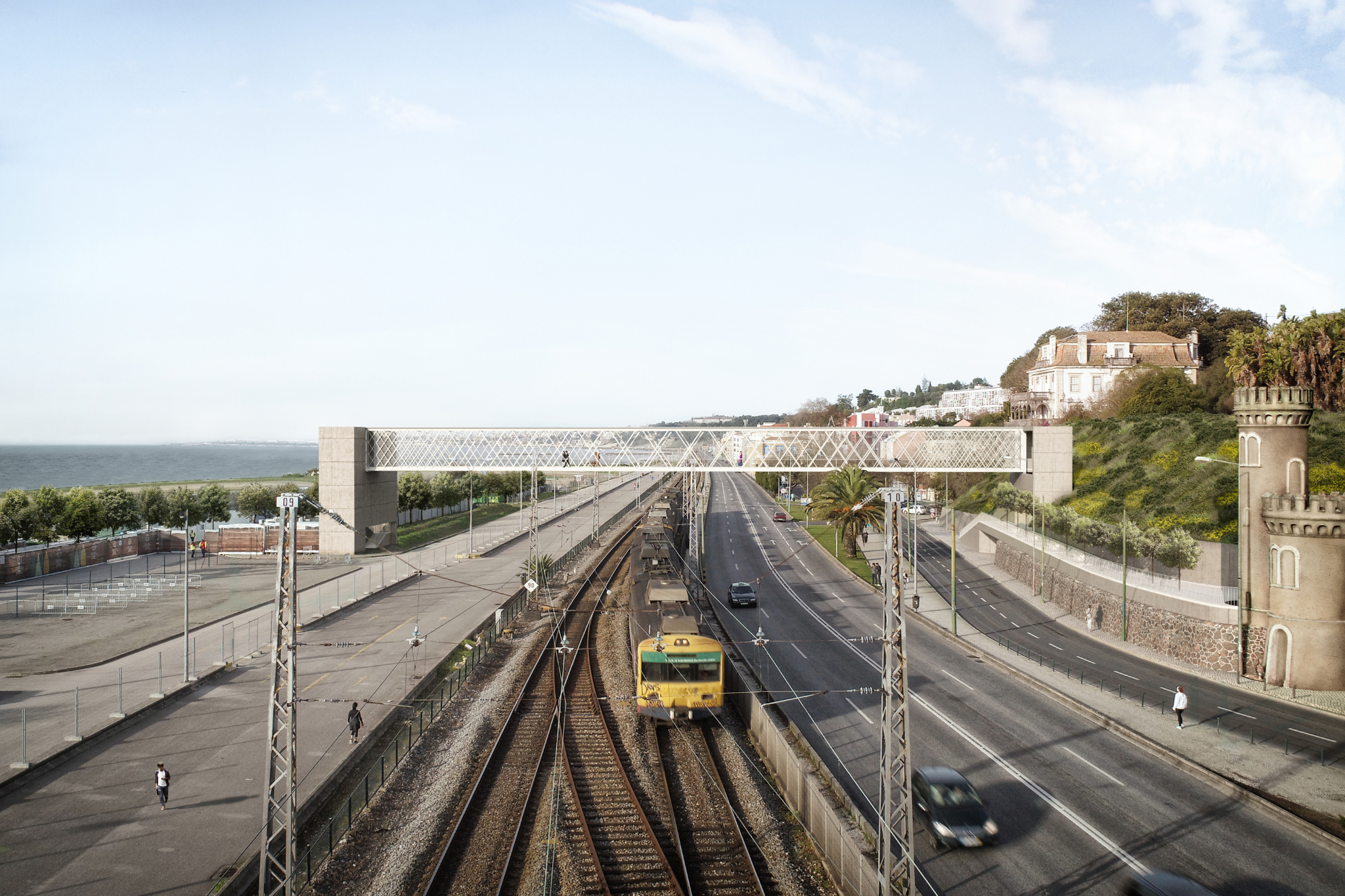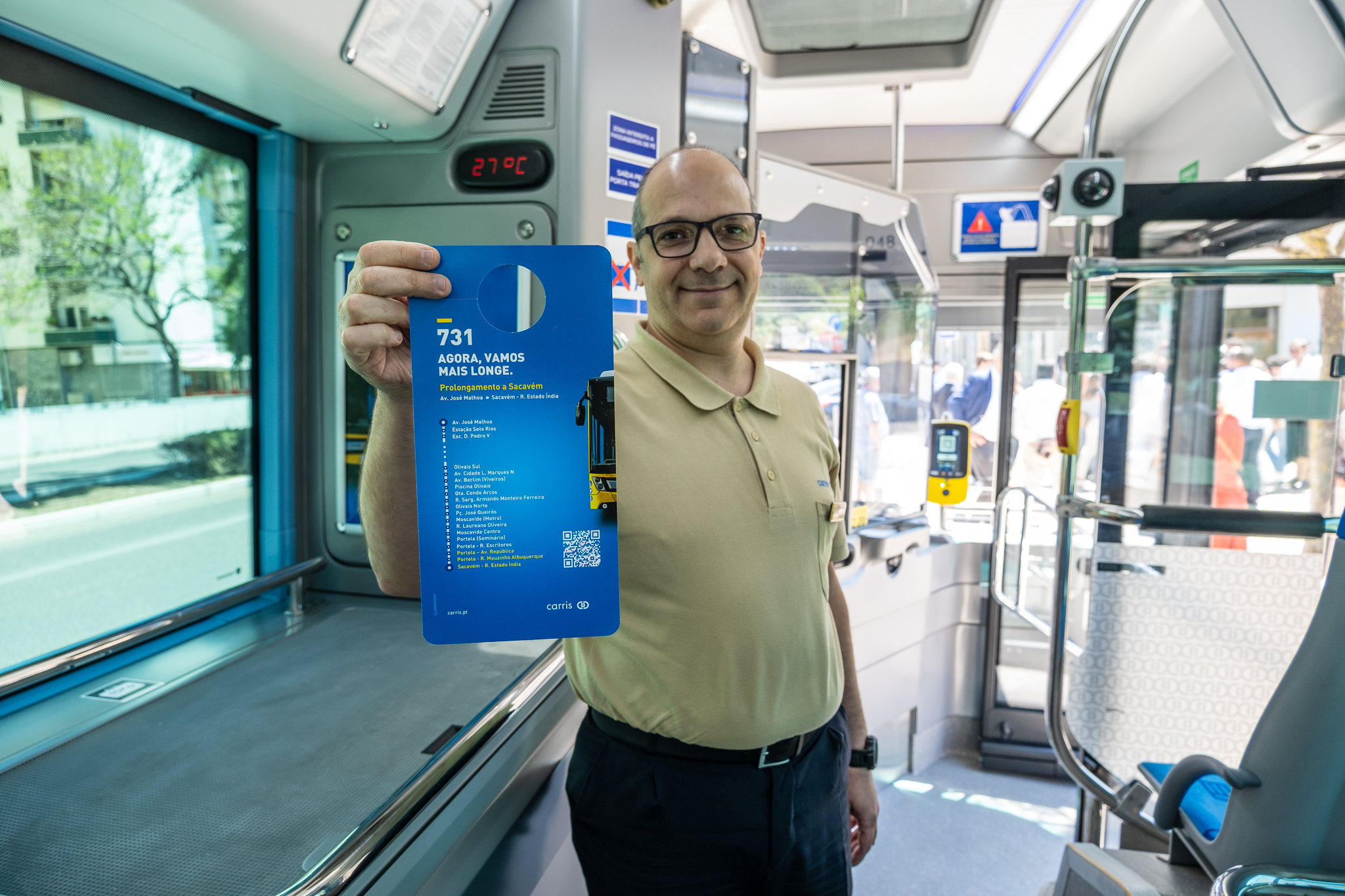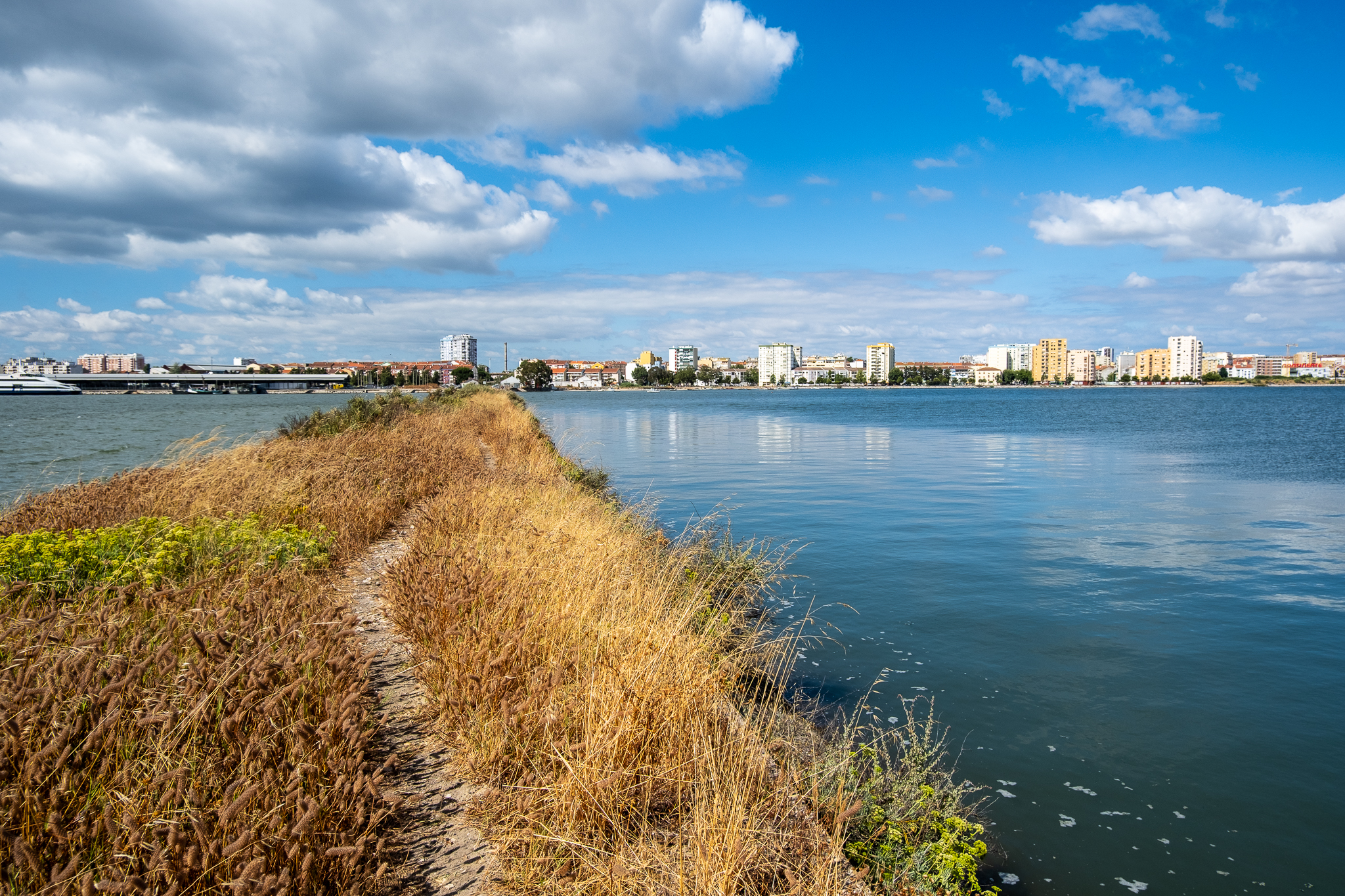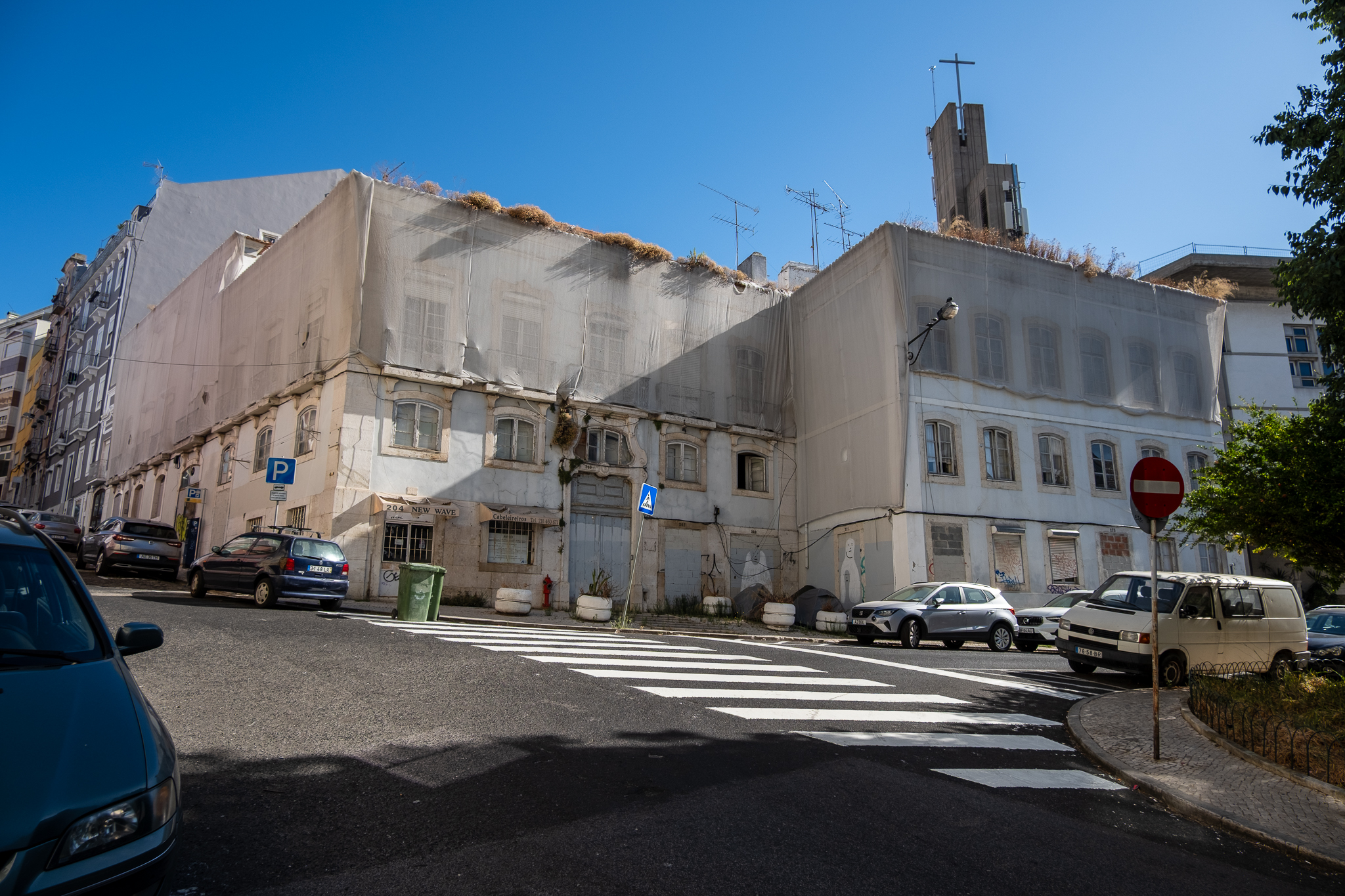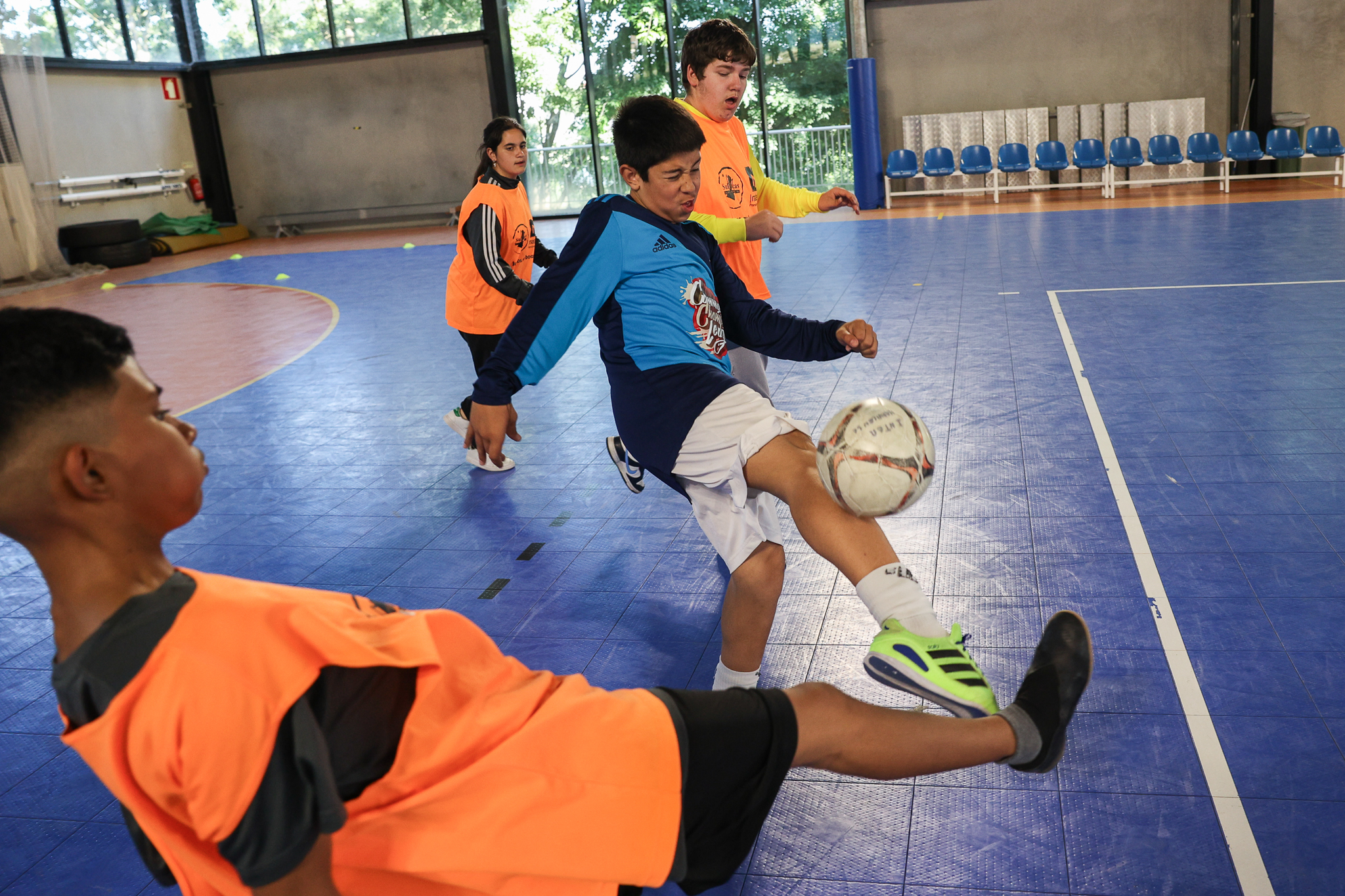On Tuesdays and Thursdays, in the Restelo neighborhood, a group of children walk to school, accompanied by some adults. It is a Pedestrian Train, an informal, community initiative that is taking some cars out of the school surroundings.

Minutes before the first bell, the school surroundings become small road chaosWith cars queuing up or parked in the little space available, and, worse than that, emanating pollutants into children's sensitive noses and lungs. Cities like Paris or Barcelona have programs to pedestrianize school streets, and even Lisbon has already made some experiments in this direction. In Belém, a group of parents came up with an idea to remove cars from in front of the Bairro do Restelo Elementary School (EB): promote group and walking to school for children.
The idea itself is not original and is the result of several inspirations: on one hand, the Bicycle Trains, a successful municipal program in the city of Lisbon, present in almost twenty schools and which allows children to go to class on bicycles, in groups and accompanied by adults; on the other hand, projects such as SigAPé or PediBus, which have already had sporadic implementations in Lisbon and outside the city.
The mothers and fathers who decided to activate this "Pedestrian Train" or "SigAPe" in Restelo also participate in the Bicycle Train that takes place weekly at their children's school. And when it is not the official day of the "Comboio da Câmara", they mobilize to voluntarily accompany the children to school. The group began to notice that there were children who, for one reason or another, did not ride their bikes, but the mothers and fathers were willing to participate in a walking group to school.

The story of the Restelo "SigAPé" is similar to that of the Bicycle Trains: if those started with a father, here the beginning of the story is a mother. "I started taking my daughter on foot, and every once in a while we would go with more people. We realized that the kids could go talking, that it was more relaxed than going by bike. The kids suddenly not only go talking, but they stop to look at things that were in the street, ask questions, etc. They interact with the public space."says Ana Rita. She started to organize herself with other mothers and fathers who already participated in the Comboio de Bicicletas, and began to have interested parties from outside that environment. "Some parents come by car and leave it in an area away from the school, where they can park more easily. Then two or three adults take their children to school. Or they come too."
Like the Bicycle Trains, the "trains" on foot have a fixed route and stops in between. And along the way new children can join in. Many parents also go along to help carry the backpacks or simply to socialize with their peers; others simply entrust their children to the group. In the case of Restelo, almost all the kids join at the meeting point marked by the Pingo Doce on Avenida da Torre de Belém. Pedestrian Trains have several advantages over Bicycle Trains, namely in terms of family logistics. "They don't have the logistics of the bicycle, where the parents who come from further away come with it in the trunk, and then have to come and pick them up with the bike or take the bike back." Here they can simply park and drop off the kids, which in Ana Rita's opinion can get cars out of the front of the schools. "There are two children who come with us and their father left them there on the Avenida da Torre de Belém, at the meeting point, where it is easy to stop the car"says Ana Rita.

The Avenida da Torre de Belém, a wide avenue with parking space, much of it unused, could help to get cars out of the front of the Restelo Neighborhood School. Fathers and mothers could leave their children there, entrusting them to adults who would walk them the last few meters to school. These Pedestrian Trains can be articulated with actions to close the school surroundings to traffic. "I think that when children ride or bike or walk to school, parents recognize that it is a great benefit to them, because they arrive energized and not sleeping, because they go along the way talking and discussing what they are going to do on the playground, because they pay attention to things that are in the environment and they start to know the names of the streets without us telling them."Ana Rita, recognizing that there would have to be a change in family habits, which is not always easy because of the complicated lives of each household. "The beginning of a morning is very complicated for many families, who have several children, have to get across town, and have pressing work schedules. And participating in this would be another stressor, despite the benefits."
"We promoted the initiative with the school's parents' association and we haven't had many people join in. And one of the reasons we've heard parents mention is that they always come on the clock and to come on foot, the children have to be at least 15 minutes earlier at the meeting point.he says. Many of the boys and girls who attend the Escola Básica Bairro do Restelo "does not live 500 meters away from the school, as happens in other schools in Lisbon"which would imply leaving home early to participate in this SigAPe. "We know people we know well who can't keep up with the initiative because they come from the other side of town and 5 or 10 minutes earlier makes all the difference in the dynamic they have in the morning. And because they're very subject to traffic, they also happen to be very permeable to all sorts of unpredictable things that happen with traffic."
The group of mothers and fathers who have promoted the Restelo Pedestrian Train do it with a certain informality. There are meeting points and some weeks some parents go with their children, other weeks others go. Everything is arranged in a WhatsApp group, where they will promote other meetings and dynamics. The group feels like a community and there is trust within it. It is because there is this relationship between people that this Pedestrian Train exists, and it is because there is trust that some parents feel comfortable leaving their children in the group and going to work. "These are people who already know each other pretty well. It's a community that even comes from before some of these kids came to this school and is from here in the neighborhood. There's some trust relationship between the kids and the adults, so it's easier for this organization." This relationship between the adults is felt along the way, where they also talk and taking advantage of the morning walk to charge energy for the day.

For Ana Rita, it's a different dynamic than that of the Bicycle Trains, where parents sign their children up, knowing that they have trained adults driving the group and access to insurance. It's as if they are hiring a service. "There's not a lot of rapport between people. People even know about the initiative but, because they don't know each other, they don't embrace it in the same way." And even the children don't always manage to talk to each other when they ride their bikes. Ana Rita says it all comes down to one question: "The biggest problem is mismatches between where people live and where people work."
While the children wait for each other at the meeting point next to the Pingo Doce, those who arrive chat, exchange ball cards or improvise games with elements of the public space. Salvador, João Clemente's son, doesn't know which days he should walk or ride his bike, and he trusts his father to organize this. He likes to go to school either way and has no preference. But he takes risks, a little embarrassed: "Going on foot always gets you talking." Two friends from Salvador corroborate and add, laughing to disguise their natural embarrassment: "By bicycle it may be faster, but it tires more." The children who gather there all know each other already - they are from the same school but from different classes.

The "SigAPé", "Comboio Pedonal", "PediBus", or "Autocar Humano" (Human Bus) for the Restelo neighborhood school - there is no agreed upon name, but the mothers and fathers prefer the first one - is based on the informality and will of a group of parents, of which João Clemente is a member. He is also a leader of the Bicycle Train to the same school, is one of the most active voices in the neighborhood and a member of the association Vizinhos de Belém. He claims for much better conditions for those who walk and cycle, and a better balance with the other modes of transportation. He says that, with SigAPé, he has already managed to get several drivers to stop parking on the sidewalks where the group passes. "We got the kids making parking tickets and putting them on the car windows. It always has a different impact when they are the ones doing it and signing it."he says. He also managed to get the municipality to move a pane of glass from the sidewalk to the road. "They were five stars, promptly removed it from there and put it on the road. But in the meantime, the mayor barfed because the thing was taking away a parking space and it's already on the sidewalk again.", regrets.
The Restelo Pedestrian Train runs on Tuesday and Thursday mornings. The meeting point is at 8:40 am next to the Pingo Doce supermarket on Avenida da Torre de Belém. Those interested in participating can contact the mothers and fathers organizing the initiative via e-mail cdb.eb.bairrodorestelo@gmail.com. This SigAPe will remain informal and communal, at least for now. "There was a phase when we thought about formalizing SigAPé, but then life happened; it's spontaneity, some days some people go and other days others go.says Ana Rita. "It is the bonds of trust that have been generated here, in this short journey, that keeps this train alive"João adds. "Now it would be very interesting if this and other school surroundings were closed to traffic at entry and exit times, and parents coming from far away could stop further away, in an area with space, and do the last few minutes and meters on foot."

